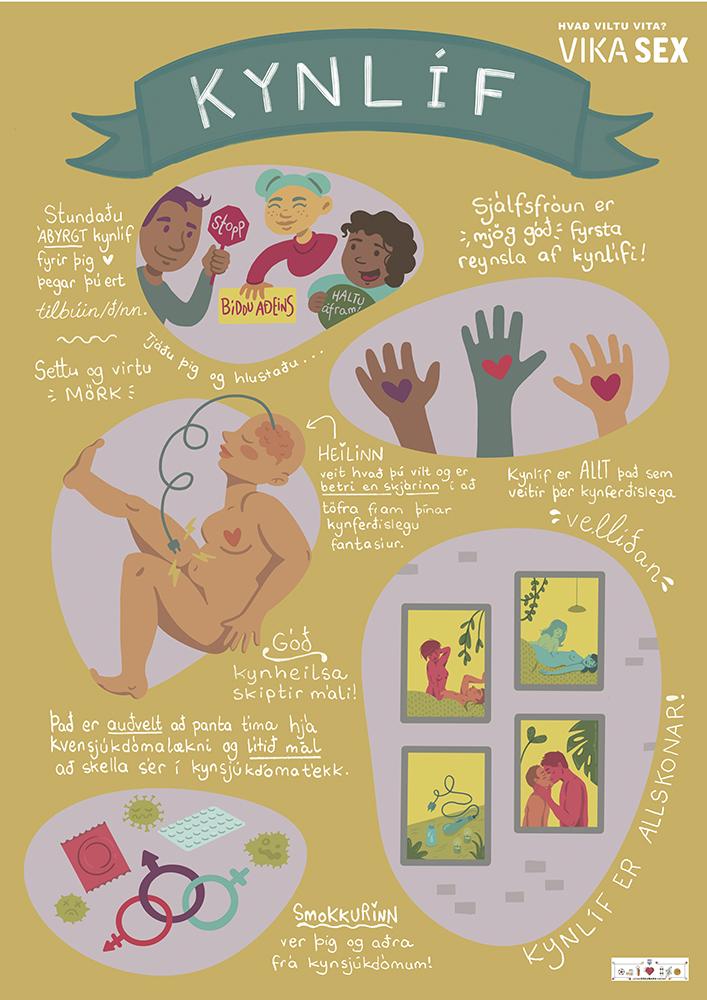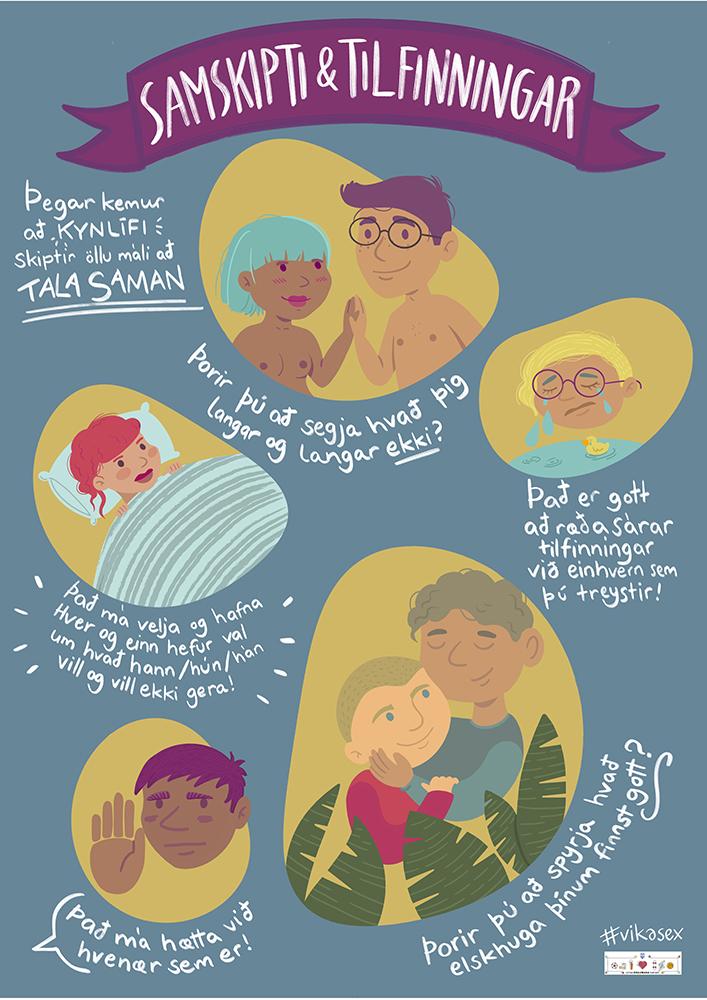Week6
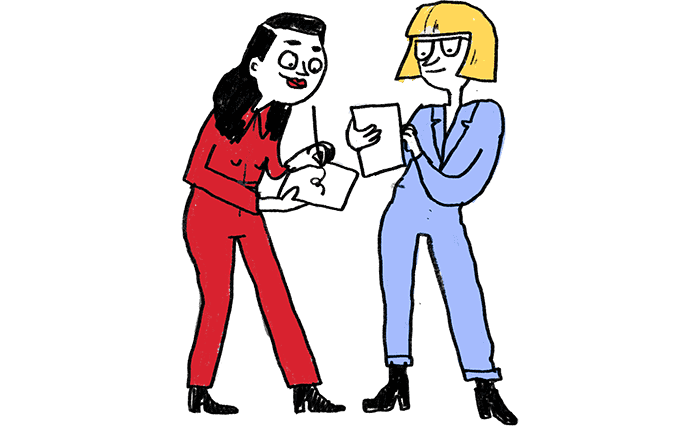
Week6 is the sixth week of each year. During this week, staff at primary schools, preschools, youth centers and after-school programs are encouraged to emphasize sexual health and provide diverse, age-appropriate sex education. Other municipalities are warmly invited to participate in Week6 in ways that work best for their communities.
Project coordinators from Reykjavík's Gender Equality Academy, Indíana Rós and Maríanna, run Week6 while the city's teenagers vote on each year's theme. Work is based on the concept of comprehensive sex education
Do You Want to Learn to Have Good Sex?
Educational video for adolescent students on how to have good sex.
No one understands me as well as you do
Educational video for adolescent level about cybersecurity.
Week6 2026
Week6 is scheduled for Feb. 2-6, 2026. This year's theme is safety and violence. The theme can be explored in a variety of ways, based on the age and development of each child group. Reykjavík's Gender Equality Academy has developed age-specific education packages available below. These themed packages include educational materials, guidance and teaching ideas.
Education package for preschools
Education package for youngest level
Education package for mid-level
Education package for adolescent level
Education package for youth centers
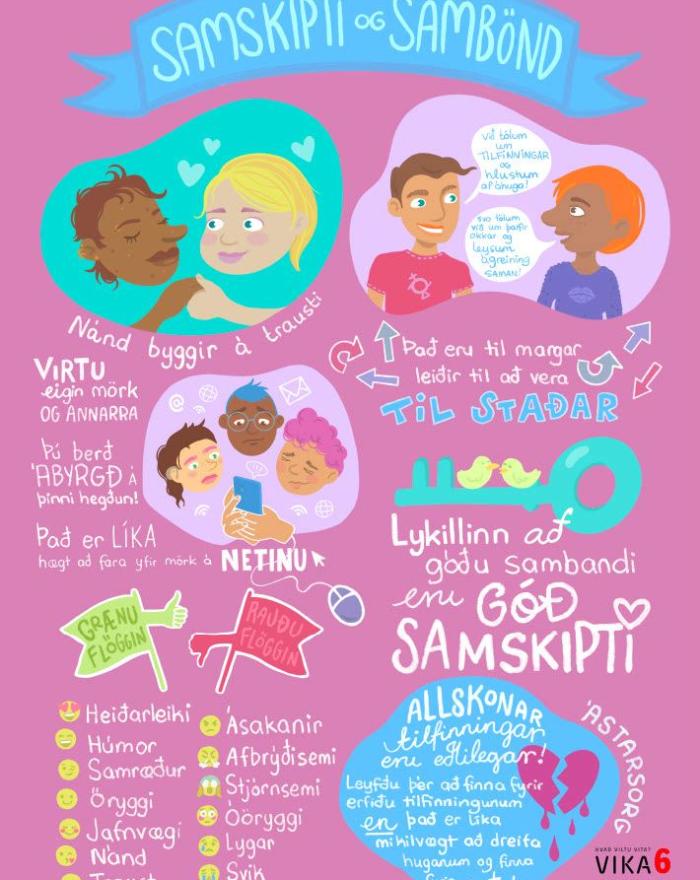
Documents from Week6 2026 educational packages
Parent letter:
Education packages
Here you'll find links to the Week6 2026 educational packages and their documents in PDF format.
Click on the document names to open the links.
- Preschool
- Primary level
- Middle level
- Adolescent level
- Youth centers
Difficult conversations: When a child or young person reports violence. Handbook for Department of Education & Youth staff. - PDF document
- Link to electronic document
Brochures "What now?" and "One step at a time: "
- What now? - for printing - A document optimized for print. Best printed double-sided with mirroring along the short edge.
- What now? - Document better suited for digital reading.
- One step at a time - for printing - A document optimized for print. Best printed double-sided with mirroring along the short edge.
- Eitt skref í einu (One step at a time) - Document better suited for digital reading.
- Where can I seek help? - Poster
Adolescent level:
- Social media and self-image - Teaching guidelines
- Yes or no? Understanding boundaries and consent - Teaching guidelines
- Myth or truth - Answer sheet
- Am I ready to have sexual relations with another person - Checklist
- Analyzing song lyrics - Teaching guidelines
- Violence against men portrayed as humor - Teaching guidelines
- Pyramid of sexual abuse - Teaching guidelines
- Media literacy and sexual health - Educational package
- Evaluating relationships - Worksheets
- Which are you - Guidelines
- Anonymous questions teaching guidelines
Middle level
- Social media and self-image - Teaching guidelines
- Yes or no? Understanding boundaries and consent - Teaching guidelines
- Safer touch - Teaching guidelines
- Right or wrong - Answer sheet
- Media literacy and sexual health - Educational package
- Anonymous questions - Teaching guidelines
- Is this consent - Worksheet
- Safe and unsafe secrets - Worksheet
Youngest level and preschool
- Safer touch - teaching guidelines
- My body, their body - Coloring book
- Pictures for printing - Safe or unsafe
- Useful material to strengthen children's emotional skills
- Safety card
Previous materials
Materials compiled for Week6 from previous years are available here.

How Week6 works
Every year, adolescents choose the theme for Week6. It is done either through a democratic meeting or an online vote. Once the theme is chosen, preparations for the week begin. It is expected that each workplace will prepare for the week in a way that best suits their location.

The Gender Equality Academy's contributions to Week6 include
- Encouraging management and staff to actively participate in Week6.
- Providing various educational materials and teaching ideas related to the theme for staff to use during Week6 if they so choose.
- Develop educational posters and distribute them to all primary schools with adolescent levels and youth centers citywide.
- Produce educational videos in partnership with RÚV.
- Sending condoms to all students in 10th grade.
Educational videos
On the occasion of Week6, the Gender Equality Academy has produced educational video segments in collaboration with UngRÚV and Mixtúra that discuss sex and gender awareness of young people from different perspectives. The videos are published on the UngRÚV website and here on the Gender Equality Academy's site.

Week6 posters - Intended for adolescents


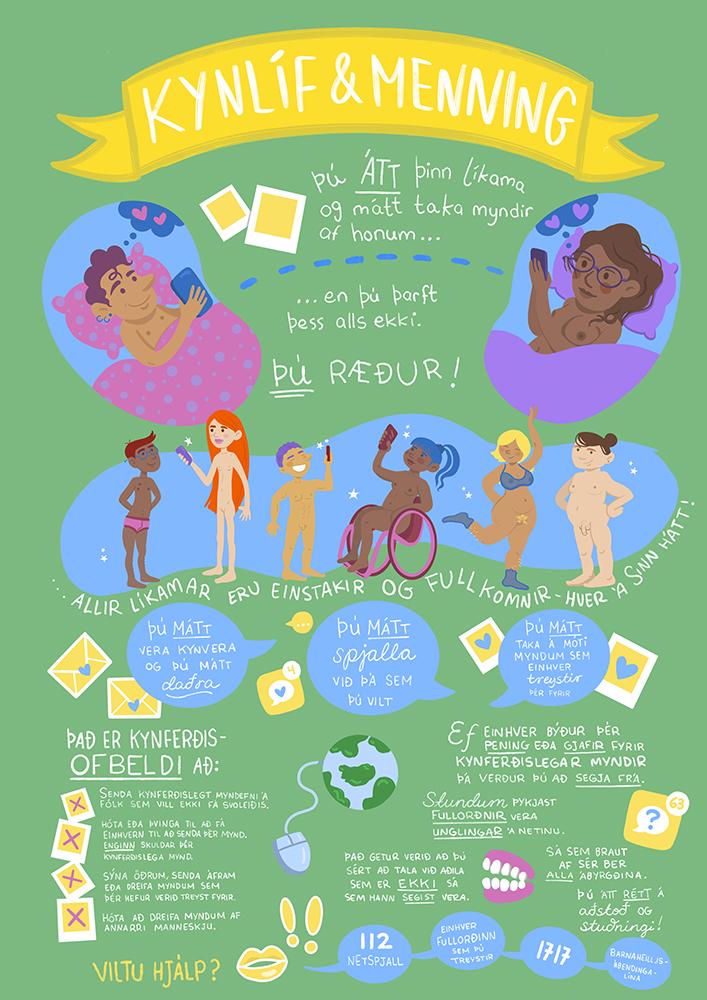
Sex education for all levels of primary school - Toolboxes
- Sex education – youngest level Ideas for teaching materials, icebreakers, and instructional guides along with other informative content.
- Sex education – middle level Ideas for teaching materials, icebreakers, and instructional guides along with other informative content.
- Sex education – adolescent level Ideas for teaching materials, icebreakers, and instructional guides along with other informative content.
- Sex education – materials for staff Ideas for teaching materials, icebreakers, and instructional guides along with other informative content.
Good to know
According to educational law, all children shall receive sex education at every education level. By providing comprehensive sex education, we:
- Train children and adolescents to recognize and respect their own boundaries and those of others. Ensure they understand that each individual is unique and people have different boundaries.
- Enhance the knowledge of children and adolescents regarding sex, gender identity, and sexual orientation, body, emotions, rights, communication, and sexual health.
- Boost the self-esteem of children and adolescents and train them in critical thinking. Empower them to make decisions that bring well-being to themselves and others and not harm.
- Make children and adolescents aware of their sexual health and encourage them to make choices based on their own terms while respecting all involved.
Before starting sex education, it can be good to keep the following in mind
- Start by creating a safe atmosphere and environment.
- Emphasize respect within the group.
Remember diversity, such as gender identity, sexual orientation, disability, culture, and more
- Aim to speak as gender-neutral and openly as possible. Using words like some, most, many, for example talking about those with penises and those who menstruate is beneficial.
- Do not be exclusionary or make assumptions about students' interests or experiences.
Have age-appropriate educational materials
- Prepare specially for those who may find the topic challenging, as the discussion may be difficult for some and not all education is suitable for everyone in the same way.
How to best approach sensitive discussions
First, go through a certain self-reflection
- Remember that you are in an educational role, be neutral in your teaching and focus on the welfare of the students.
- If you do not feel confident in a particular discussion, don't engage in it; have someone else do it or prepare very well and have the discussion when you feel you can do it well.
Choose our words carefully
- Speak respectfully to students and consider that there are various individuals within the group.
- Set our own boundaries and respect others' in discussion.
- Be unafraid to set boundaries for yourself and ensure you don't cross students' boundaries, for instance by speaking too crudely or describing your own sexual experiences from younger years. DO NOT talk about your own experiences in sex education; it can be really uncomfortable for some students and alter their perception of you. You can cite your own experience but frame it differently, for example: A friend of mine sometimes experienced that... or: I know a girl who...
- Be sincere.
- Remember that we are not the ultimate destination for information.
